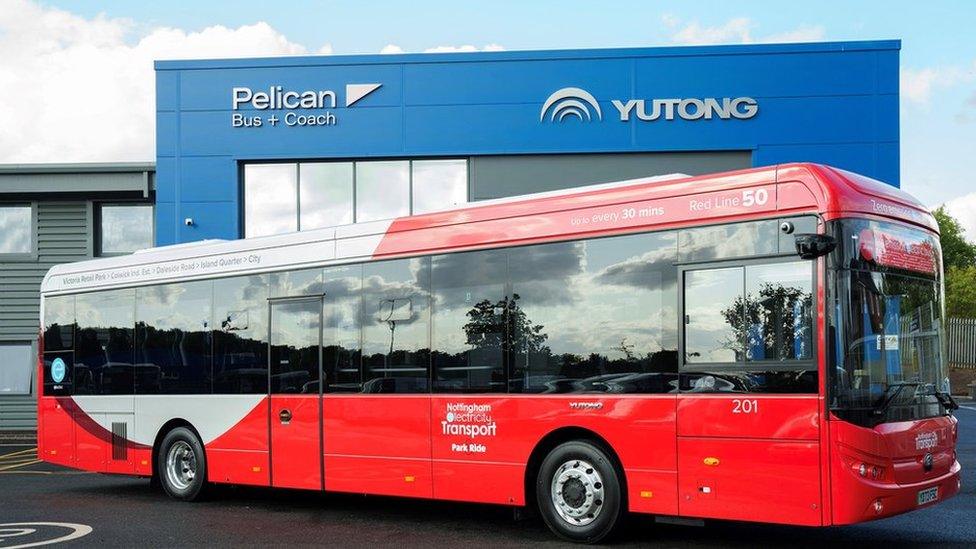Nottingham: New electric buses to be in operation by end of March
- Published

The first 12 of the single-decker buses are expected to be in operation later in January
A new fleet of 24 electric buses bought by Nottingham City Transport (NCT) are expected to be in operation by the end of March.
The new fleet will help NCT end the use of diesel buses entirely by 2028, said managing director David Astill.
The first 12 of the single-decker buses are expected to be in operation later in January with the remainder introduced two months later.
The new buses will cost about £400,000 each.
NCT said it expected to have changed its entire fleet to electric by 2034.
The Chinese Yutong buses, which have a range of up to 275 miles, will be introduced on the Pink 30, Blue 39 and Red 50 routes.
The total cost of the electric bus project, which includes both the new buses and infrastructure, is £34m, the Local Democracy Reporting Service said.
About £15.2m of the cost has come from the Department for Transport's Zero Emission Bus Regional Areas fund, while the remaining £18.8m is investment by NCT itself.
Speaking during a Nottingham City Council companies governance executive committee meeting on Tuesday, Mr Astill said government funding was a "massive incentive", but plans to convert the entire fleet to electric would only be achievable if funding continued.
"We already boast the largest fleet of biogas-powered buses in the world, with 143 currently," he said.
"In order to help Nottingham reach its [carbon neutral 2028] aspirations, we are looking to replace the diesel fleet by 2028, so four years from now."
In two years, NCT plans to order electric double-decker buses to further build the fleet.
Another 24 single-decker buses have also been ordered and are due to be delivered in 2025, bringing the total to 48.

Follow BBC East Midlands on Facebook, external, on X, external, or on Instagram, external. Send your story ideas to eastmidsnews@bbc.co.uk, external.